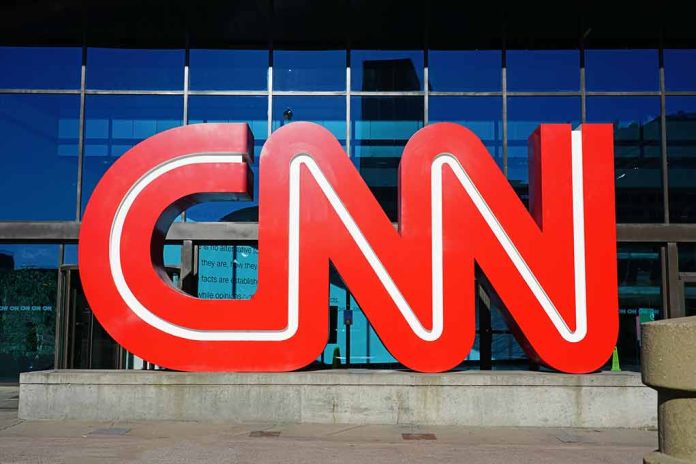
CNN faces a crushing defeat as a judge rules in favor of Navy veteran Zachary Young in a high-stakes defamation case, exposing the network’s reckless reporting on the Afghanistan withdrawal.
At a Glance
- Judge William S. Henry ruled that CNN’s accusations against U.S. Navy veteran Zachary Young were unfounded
- CNN’s segment on “The Lead with Jake Tapper” falsely portrayed Young as an illegal profiteer during the Afghanistan withdrawal
- The court found no evidence to support CNN’s claims of exorbitant fees or ties to a “black market”
- CNN must now open its financial books to Young’s legal team, potentially exposing the network to significant damages
- A civil trial is scheduled for January 6, 2025, in Bay County, Florida
CNN’s Reckless Reporting Exposed
In a scathing rebuke to CNN’s journalistic integrity, Judge William S. Henry has ruled in favor of U.S. Navy veteran Zachary Young in a defamation case that strikes at the heart of the network’s coverage of the Afghanistan withdrawal. The ruling exposes CNN’s reckless disregard for truth and its willingness to sacrifice an American veteran’s reputation for the sake of sensationalism.
The case stems from a November 11, 2021 segment on “The Lead with Jake Tapper,” where CNN brazenly accused Young of exploiting desperate Afghans through exorbitant fees for evacuation services. However, the court found these accusations to be baseless, with Judge Henry stating that Young “did not act illegally or criminally” despite CNN’s on-air claims.
“destroyed his reputation and business by branding him an illegal profiteer who exploited desperate Afghans” – Zachary Young
This ruling is a damning indictment of CNN’s flagrant disregard for journalistic ethics and its apparent willingness to smear an American veteran for the sake of ratings. It’s a stark reminder of the dangers posed by a mainstream media that prioritizes narrative over truth, especially when covering complex international situations.
The judge in a high-stakes defamation lawsuit against CNN ruled on Tuesday that U.S. Navy veteran Zachary Young "did not act illegally or criminally" despite what the network reported on air.
Young alleges that CNN smeared him and his security consulting company, Nemex… pic.twitter.com/ttcI5WjtL6
— Melissa Hallman (@dotconnectinga) October 23, 2024
CNN Forced to Open Its Books
In a move that could spell financial disaster for the network, Judge Henry has ordered CNN to provide Young’s legal team with access to its financial records. This unprecedented level of transparency will allow Young’s attorneys to assess the full extent of damages caused by CNN’s defamatory reporting.
This ruling is not just a victory for Young, but for all Americans who have been wronged by the mainstream media’s reckless reporting. It sends a clear message that even powerful media conglomerates are not above the law and can be held accountable for their actions.
The Afghanistan Withdrawal: CNN’s Failed Narrative
CNN’s attempt to paint Young as a profiteer during the chaotic Afghanistan withdrawal now appears to be nothing more than a desperate attempt to shift blame away from the Biden administration’s catastrophic mishandling of the situation. By fabricating a narrative of exploitation, CNN not only defamed Young but also diverted attention from the real issues surrounding the withdrawal.
The court’s ruling exposes the hollowness of CNN’s reporting on the Afghanistan withdrawal. Judge Henry dismissed CNN’s attempts to justify its actions by citing Sharia law, noting that no formal laws restricting movement in Afghanistan were in place until 2024, well after the events in question.
As the January 2025 trial date approaches, CNN finds itself in an increasingly precarious position. The network’s silence on the ruling speaks volumes, suggesting a reluctance to face the consequences of its actions. This case serves as a stark reminder of the importance of truthful reporting and the potential consequences of prioritizing sensationalism over facts.






















